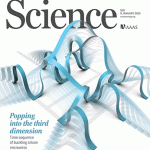 This week at Retraction Watch featured a hotly debated guest post from Leonid Schneider and two ORI findings. Here’s what was happening elsewhere: Continue reading Weekend reads: Potti trial to begin; fraudster post-doc fired; how to avoid predatory journals
This week at Retraction Watch featured a hotly debated guest post from Leonid Schneider and two ORI findings. Here’s what was happening elsewhere: Continue reading Weekend reads: Potti trial to begin; fraudster post-doc fired; how to avoid predatory journals
Author: Ivan Oransky
Former Pitt cancer researcher admits to faking findings

A former researcher at the University of Pittsburgh inflated the number of mice used in his experiments, and faked data in a number of images in a paper reporting the results, according to the Office of Research Integrity (ORI).
Dong Xiao admitting to having
intentionally fabricated data contained in a paper entitled ‘Guggulsterone inhibits prostate cancer growth via inactivation of Akt regulated by ATP citrate signaling,’ specifically Figure 6G,
the ORI reports. The paper was published in in July 2014 in Oncotarget. Here’s Figure 6: Continue reading Former Pitt cancer researcher admits to faking findings
PubPeer Selections: Good behavior earns praise; questions about HIV vaccine research
 PubPeer continues to make its mark on the scientific literature. Here’s another installment of PubPeer Selections: Continue reading PubPeer Selections: Good behavior earns praise; questions about HIV vaccine research
PubPeer continues to make its mark on the scientific literature. Here’s another installment of PubPeer Selections: Continue reading PubPeer Selections: Good behavior earns praise; questions about HIV vaccine research
What if universities had to agree to refund grants whenever there was a retraction?

We’re pleased to share this guest post from Leonid Schneider, a cell biologist, science journalist and a prolific cartoonist whose work graces our Twitter profile and Facebook page. In it, Schneider argues for a new way to ensure accountability for publicly funded research.
It has become clear that scientific dishonesty is rarely sanctioned. In the worst case scenario, manipulated or fraudulent papers have to be retracted, yet scientists of a certain academic standing can weather retractions without much adverse effect on their careers or institutional budgets. Retraction Watch lists plenty of cases in which the full blame for retracted papers has been accepted by the first author, with the senior principal investigator (PI) continuing as nothing has happened. Cases of justice, like that of the HIV-vaccine fraudster Dong-Pyou Han, who has apparently accepted a plea bargain after losing his job at Iowa State University, which in turn had to forfeit part of a $14.5 million NIH grant to the lab in which he worked, are very rare.
The problem is that Continue reading What if universities had to agree to refund grants whenever there was a retraction?
Oklahoma postdoc admits to faking data in grant application, submitted paper

A postdoc at the Oklahoma Medical Research Foundation faked data in a submitted paper and in a grant application, according to a new report from the Office of Research Integrity.
Bin Kang admitted to the misconduct, in which he Continue reading Oklahoma postdoc admits to faking data in grant application, submitted paper
Weekend reads: Vaccine research fraudster to plead guilty; nonsense authors publish another paper
 This week at Retraction Watch witnessed the fall of a “golden boy” and a “NASA Patriot Boy.” Here’s what was happening elsewhere: Continue reading Weekend reads: Vaccine research fraudster to plead guilty; nonsense authors publish another paper
This week at Retraction Watch witnessed the fall of a “golden boy” and a “NASA Patriot Boy.” Here’s what was happening elsewhere: Continue reading Weekend reads: Vaccine research fraudster to plead guilty; nonsense authors publish another paper
Researchers retract Science paper claiming to have detected a single proton
 Less than three months after publishing a paper in Science which they claim to have been able to detect the spin of a single proton, the authors have retracted it for “a potentially serious issue with the main conclusion.”
Less than three months after publishing a paper in Science which they claim to have been able to detect the spin of a single proton, the authors have retracted it for “a potentially serious issue with the main conclusion.”
Here’s the notice: Continue reading Researchers retract Science paper claiming to have detected a single proton
Weekend reads: Silenced Anil Potti whistleblower revealed; how to identify scientific crackpots
 The first full week of 2015 featured a few drug company-related retractions. Here’s what was happening elsewhere: Continue reading Weekend reads: Silenced Anil Potti whistleblower revealed; how to identify scientific crackpots
The first full week of 2015 featured a few drug company-related retractions. Here’s what was happening elsewhere: Continue reading Weekend reads: Silenced Anil Potti whistleblower revealed; how to identify scientific crackpots
Award-winning plant researcher correcting several papers critiqued on PubPeer

Olivier Voinnet, a researcher at ETH in Zurich and the winner of the 2013 Rössler Prize, is correcting a number of papers following critiques of more than a dozen of his studies on PubPeer.
The work appears in journals including Cell and PNAS. Voinnet’s co-author on several of the papers, David Baulcombe, who is also highly decorated, left this comment on relevant PubPeer entries: Continue reading Award-winning plant researcher correcting several papers critiqued on PubPeer
PLOS Genetics investigating paper by Ariel Fernandez

Ariel Fernandez‘s list of papers with editorial asterisks next to them grew again this week.
Fernandez has had one paper retracted, two papers subject to Expressions of Concern, including one from Nature, and another put on hold over data concerns. He threatened to sue us for covering one of the Expressions of Concern.
Here’s the “Notice from PLOS Genetics” for “Protein Under-Wrapping Causes Dosage Sensitivity and Decreases Gene Duplicability:”
Please be advised that PLOS is working with the authors on an investigation regarding one or more issues that have been raised with respect to the content or authorship of this paper.
We asked Fernandez for more details. He did not provide any, saying only that the criticisms of the work “have no scientific value” because they were made anonymously: Continue reading PLOS Genetics investigating paper by Ariel Fernandez